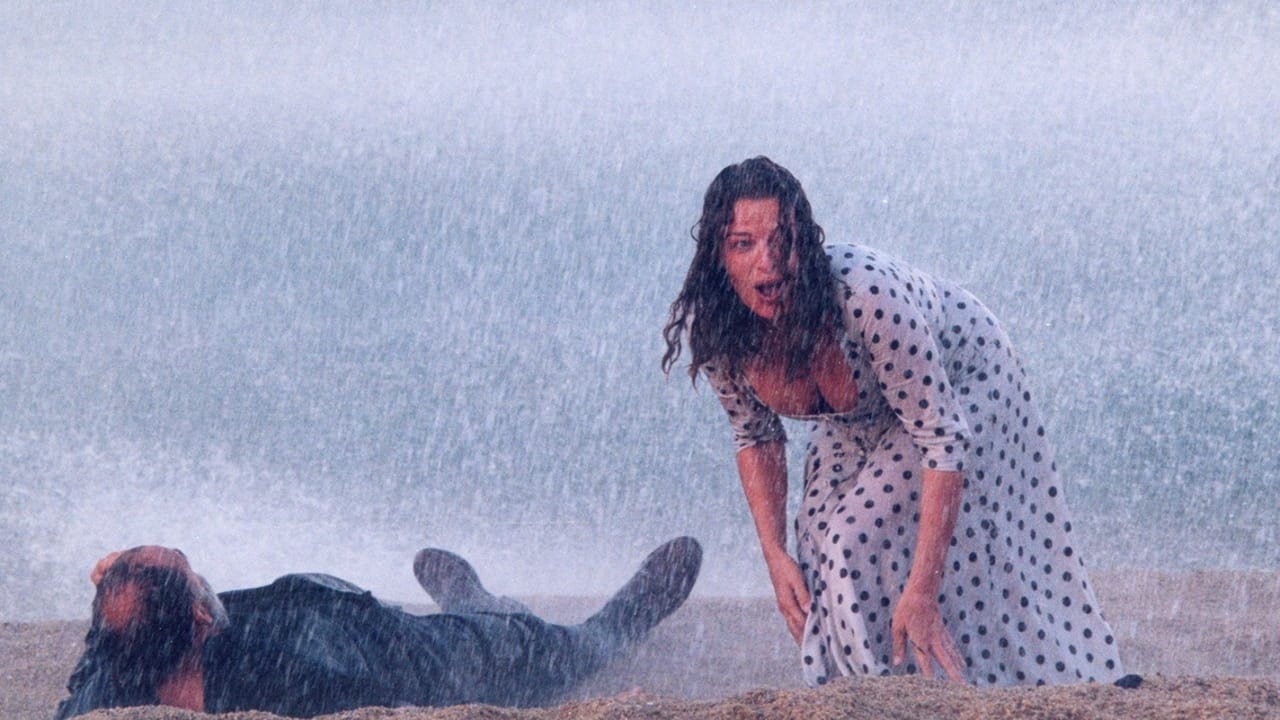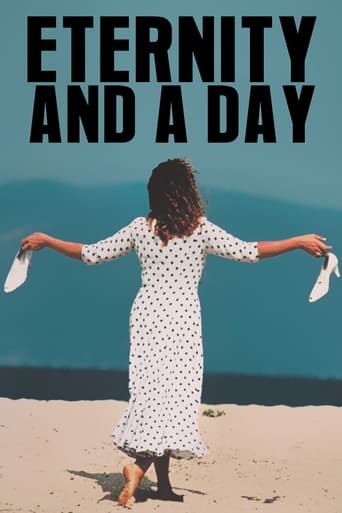

Final episode of a trilogy that got started at the beginning of the 90s, Angelopoulos asks himself the same questions that the writer Samuel Beckett once did: how to end? And he adds a new precision that will make an impact in the final answer: how to end one's life when there is only one day left to live? It is when our time is limited that we paradoxically make the most of it and we understand this by witnessing Alexandre's trip between the past, the present and the future in the last day of his life. Even though he metaphorically travels through his memories, his present will to take the boy to the border gives him the chance to make a last good action before his death. The photography, that goes from cold colours for scenes from the present to warm colors for the flashbacks, is dazzlingly full of sobriety. The words from the letters that give this poetical Odyssey its tempo are so wise that they fill us with wonder. And when we finally get the answer to the question "Tomorrow, how long does it last?", we realize that Alexandre is ready and he is no longer afraid to die. "Eternity and a day" is a magnificent legacy of this director who passed away too early but who left us several masterpieces and awards. Full review on our blog Los Indiscretos : https://losindiscretos.org/english/eternity-and-a-day-1998- theodoros-angelopoulos/
... View MoreThe most Bergmanesque of Angolopoulos's films. Simpler and less epic than most of his work, with fewer of his trademark breathtaking images and grand themes. Yet this story of a dying writer spending his last day before entering the hospital -- never to leave -- has a deeply elegiac melancholy, and his attempts to find meaning by saving an Albanian street urchin are often moving, if occasionally sappy. The same is true of Bruno Ganz' (unfortunately dubbed) relationship with his wife and family, told mainly in flashback, Much is moving, some is hokey and forced. But Ageloupolus' use of images to make film a poetic medium is always worth watching, even when flawed.
... View MoreTheodoros Angelopoulos took a Golden Palm at Cannes for this film by unanimous vote. Of course, it was also a big winner at the Thessaloniki Film Festival, winning several wards, including one for Helene Gerasimidou, who played Urania.The cinematography was extremely beautiful, but it was Eleni Karaindrou's and Mikis Theodorakis' music that ready made this a pleasurable experience. Of course, Angelopoulos is criticized by some for leaving his political film-making now that the dictatorship is over and creating a body of pretty-looking, but increasingly empty and self-indulgent work. Sometimes, self-indulgence is good.As Alexandre (Bruno Ganz) faces his last day, we are taken to the past and see his now dead wife Anna (Isabelle Renauld) as she lived. He visits relatives, but he is increasingly disappointed that life hasn't really worked out the way he wanted.H rescues a little boy from kidnappers who are selling children to rich Greeks. He tries to help the boy, but he is again frustrated. Finally, he takes the boy and joins him on a trip to his native Albania.It is only through our connection to others that we truly experience life and all it's magic.
... View MoreI can take Bruno Ganz any day! This one, it's more of a subdued role -- it reminds me of "Everybody's Fine", I can picture Marcello Mastroianni in the lead role of this story. Ganz appeared with a beard and delivered a restrained performance.Bruno Ganz exudes a certain strength and energy in the characters he played (Wim Wenders' "Wings of Desire" 1988, Gillian Armstrong's "The Last Days of Chez Nous" 1992), with an outward strong physique. This role is sort of different: he is portraying a man beset with an illness and is unsettled about his upcoming hospitalization. He's also "tormented" by his own conscience of past episodes he had with his beloved wife -- her presence recurs in "haunting" flashbacks at this fragile juncture of his impending life's end.It's his journey and adventure with a little boy whom he by chance (or fate) met. The child became a link to the revived life force and energy in Alexander (Ganz' character). No more brushing off things, no more "doesn't have time" excuses; he is to re-prioritize the events and things in his life and to make a difference -- to do something meaningful for someone other than himself -- to this little boy (in turn to himself). The child's situation prompted him to take risks -- it's about time for him to do so. He's finally experiencing living! The little boy brought him back to life, living, and caring -- woke him up, freed his self-blaming mind and pulled him out of his doldrums. The realization that action speaks louder than words (literally so when he's a writer all his life) gave him fresh insights. The whole film is poetically put together. Director Angelopoulos has intermixed political, intellectual issues with aspects of life events and levels of emotions. Good performances from Ganz, the little boy, and Anna, the wife. The story has its episodic twists and turns, reality and flashbacks, chase scenes (yes, there is action) and "mindwalks", yet there is a certain steady pace and quietness to the film. Some might find it slow and will need patience to follow the film -- don't go if you're tired, you might miss the nuances of Angelopoulos' poetic storytelling and subtle image hints. It's a beautiful, philosophical, and mind-probing piece -- prompts us to reflect on how we lead our lives. Definitely not Hollywood fare. NFE. I find an affinity of story structure to the current box office hit, "The Sixth Sense", which also revolves around a man, a child, (and a woman): a man finding redemption through the time he spent with a little boy, and trying to resolve his neglectful past relationship with his wife. In this case, "The Sixth Sense" is more "real" while "Eternity and A Day" is more like a dream state. Also brings to mind is Francesco Rosi's "Christ Stopped at Eboli" 1979 (in Italian with Gian Maria Volonte, Irene Papas), another quiet philosophical journey of a man discovering life, living and himself among simple village folks.
... View More